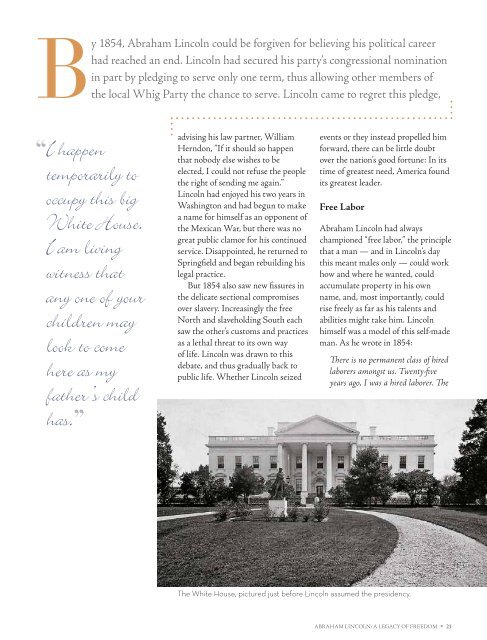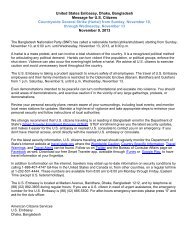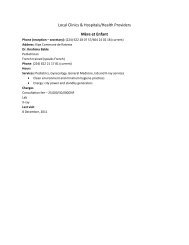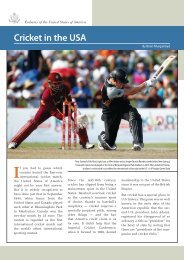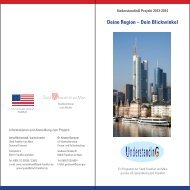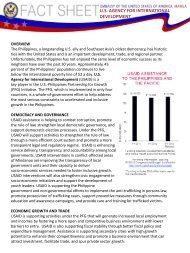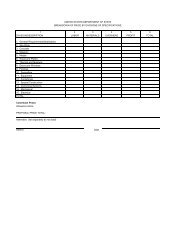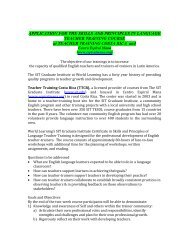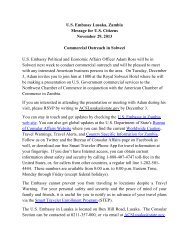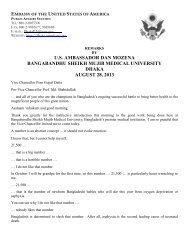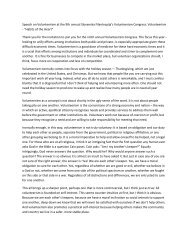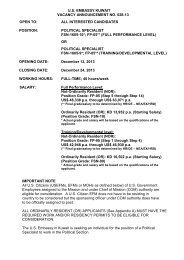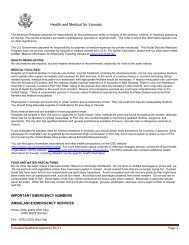Abraham Lincoln: A Legacy of Freedom - US Department of State
Abraham Lincoln: A Legacy of Freedom - US Department of State
Abraham Lincoln: A Legacy of Freedom - US Department of State
You also want an ePaper? Increase the reach of your titles
YUMPU automatically turns print PDFs into web optimized ePapers that Google loves.
y 1854, <strong>Abraham</strong> <strong>Lincoln</strong> could be forgiven for believing his political career<br />
had reached an end. <strong>Lincoln</strong> had secured his party’s congressional nomination<br />
in part by pledging to serve only one term, thus allowing other members <strong>of</strong><br />
the local Whig Party the chance to serve. <strong>Lincoln</strong> came to regret this pledge,<br />
I happen<br />
temporarily to<br />
occupy this big<br />
White House.<br />
I am living<br />
witness that<br />
any one <strong>of</strong> your<br />
children may<br />
look to come<br />
here as my<br />
father ’s child<br />
has.<br />
advising his law partner, William<br />
Herndon, “If it should so happen<br />
that nobody else wishes to be<br />
elected, I could not refuse the people<br />
the right <strong>of</strong> sending me again.”<br />
<strong>Lincoln</strong> had enjoyed his two years in<br />
Washington and had begun to make<br />
a name for himself as an opponent <strong>of</strong><br />
the Mexican War, but there was no<br />
great public clamor for his continued<br />
service. Disappointed, he returned to<br />
Springfield and began rebuilding his<br />
legal practice.<br />
But 1854 also saw new fissures in<br />
the delicate sectional compromises<br />
over slavery. Increasingly the free<br />
North and slaveholding South each<br />
saw the other’s customs and practices<br />
as a lethal threat to its own way<br />
<strong>of</strong> life. <strong>Lincoln</strong> was drawn to this<br />
debate, and thus gradually back to<br />
public life. Whether <strong>Lincoln</strong> seized<br />
events or they instead propelled him<br />
forward, there can be little doubt<br />
over the nation’s good fortune: In its<br />
time <strong>of</strong> greatest need, America found<br />
its greatest leader.<br />
Free Labor<br />
<strong>Abraham</strong> <strong>Lincoln</strong> had always<br />
championed “free labor,” the principle<br />
that a man — and in <strong>Lincoln</strong>’s day<br />
this meant males only — could work<br />
how and where he wanted, could<br />
accumulate property in his own<br />
name, and, most importantly, could<br />
rise freely as far as his talents and<br />
abilities might take him. <strong>Lincoln</strong><br />
himself was a model <strong>of</strong> this self-made<br />
man. As he wrote in 1854:<br />
There is no permanent class <strong>of</strong> hired<br />
laborers amongst us. Twenty-five<br />
years ago, I was a hired laborer. The<br />
<br />
ABRAHAM LINCOLN: A LEGACY OF FREEDOM 23


